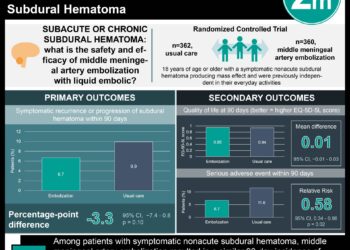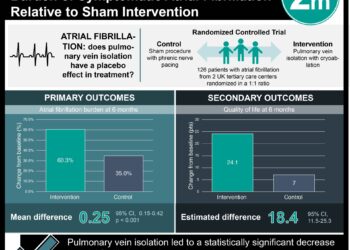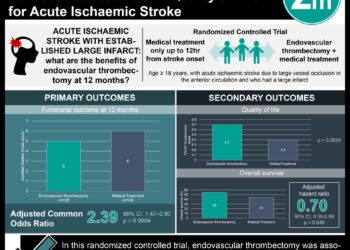Chronic care management does not improve on treatment of substance dependence
[one_half][/one_half]Image: PD
1. Chronic care management and primary care intervention groups result in similar rates of past-30-day abstinence from drinking, opioids, and stimulants.
2. There was no difference in quality of life, hospital utilization, or drug biomarkers between intervention groups.
Evidence Rating Level: 1 (Excellent)
Study Rundown: Alcohol abuse accounts for 2.5 million deaths annually in the United States, while illicit drugs have been used by 22.5 millions Americans age 12 and older in the past 30 days. Substance abuse is a complex, multifaceted problem, and the optimal approach and treatment has been long debated. Chronic care management (CCM), one treatment modality, has been previously shown to be effective in treatment programs for tobacco, depression, and other medical illnesses. CCM programs employ a multidisciplinary approach in order to improve the quality of care delivered to the patient while lowering the cost.
The goal of the Addiction Health Evaluation and Disease Management (AHEAD) study was to examine the effects of CCM versus normal primary care treatment for patients with alcohol or drug dependence. The AHEAD study determined that CCM is no more effective than primary care treatment at reducing dependence, quality of life, or emergency department utilization. The study is strengthened by its broad sampling population and excellent follow up rates at 3, 6, and 12 months (>98%). Nonetheless, the complex patient population used in the study may mean that results are not generalizable to less severe substance abusers. Although CCM was not more effective than traditional approaches, this study demonstrates a need for further investigation of different approaches to tackle the complex issue of substance abuse.
Click to read the study in JAMA
Relevant Reading: The role of medical conditions and primary care services in 5-year substance use outcomes among chemical dependency treatment patients.
In-Depth [randomized trial]: This randomized trial recruited 563 people from Boston, MA with alcohol or drug dependence between September 2006 to 2008. Participants were recruited from a detoxification unit, an urban hospital, and advertisements. CCM and primary care groups showed no significant difference in rates of abstinence from stimulants, opioids, and heavy drinking (44% vs. 42% at 12 months). CCM was associated with lower odds of opioid abstinence throughout follow-up (52% vs. 54% at 12 months). Except for fewer alcohol related problems in the CCM group (10.4 vs. 13.1 at 12 months), no significant differences were observed in subgroups including emergency department visits and quality of life.Biomarker results showed no significant difference between intervention groups.
By John Prendergass and Rif Rahman
More from this author: Reducing surgical complications may increase costs, Protected sleep periods improve intern alertness and sleep duration, ADHD medication decreases rates of criminality in ADHD patients, Low dose aspirin shows net clinical benefit in patients with first unprovoked venous thromboembolism, Rare TREM-2 mutation implicated in Alzheimer’s Disease
© 2013 2minutemedicine.com. All rights reserved. No works may be reproduced without expressed written consent from 2minutemedicine.com. Disclaimer: We present factual information directly from peer reviewed medical journals. No post should be construed as medical advice and is not intended as such by the authors, editors, staff or by 2minutemedicine.com. PLEASE SEE A HEALTHCARE PROVIDER IN YOUR AREA IF YOU SEEK MEDICAL ADVICE OF ANY SORT.







